What should i do if there’s a hornets nest in my backyard?
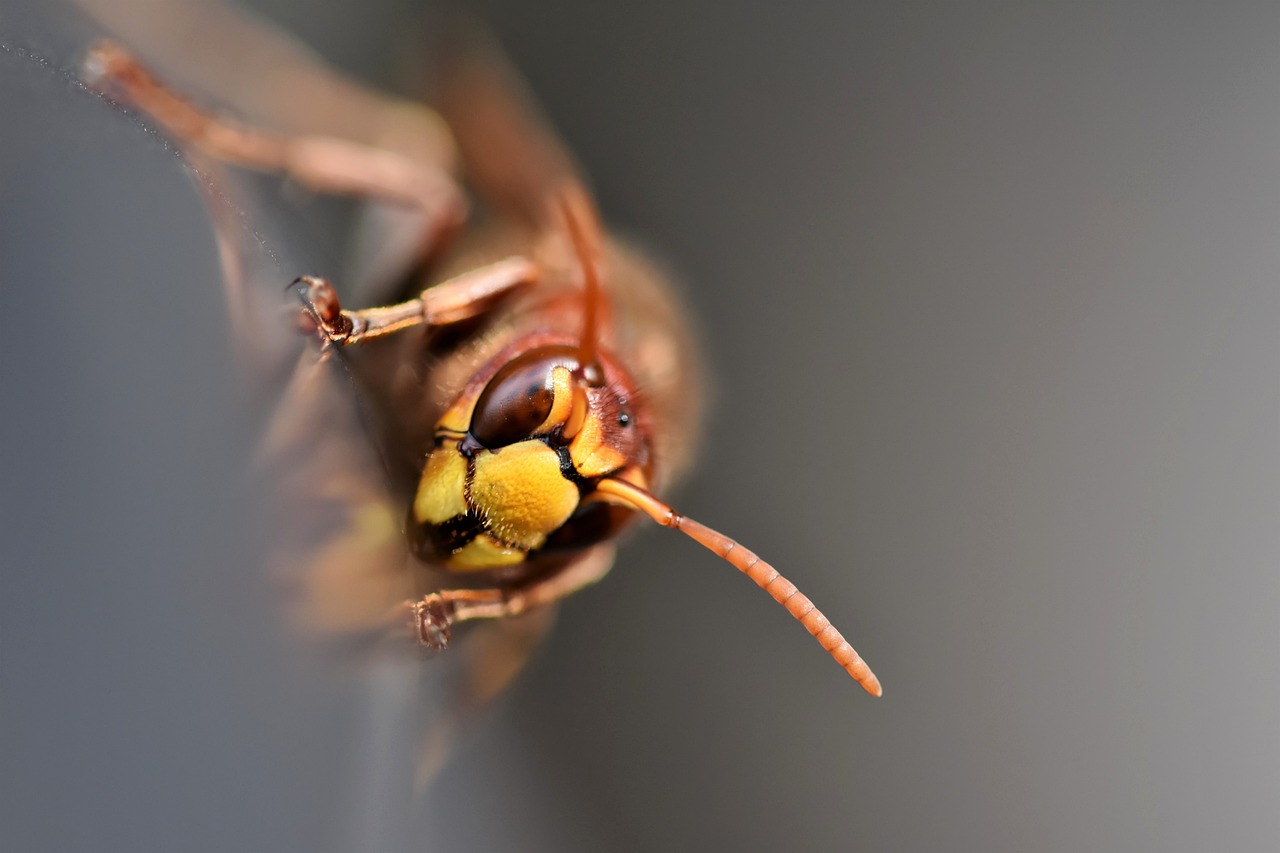
Like the other insects in the category of Hymenoptera, hornets pollinate some plants found within the United States, but their main purpose is to kill unwanted pests that harm plants and crops. When hornets are ready to build a new nest, made from saliva and wood pulp, they seek shaded, protected areas like trees or the side of houses. If you see these paper-like structured nests, keep distance and do not try and disrupt the hornets.
When hornets sting, their stinger remains, meaning they can repeatedly sting with their venom. Although both bee and wasp venom can be dangerous and cause allergic reactions, hornet venom is even more powerful.
Keep your family and friends safe from hornets. Schedule a visit from Squared Away Pest Control to handle all of your hornet and nest concerns.
How do I get rid of roaches?
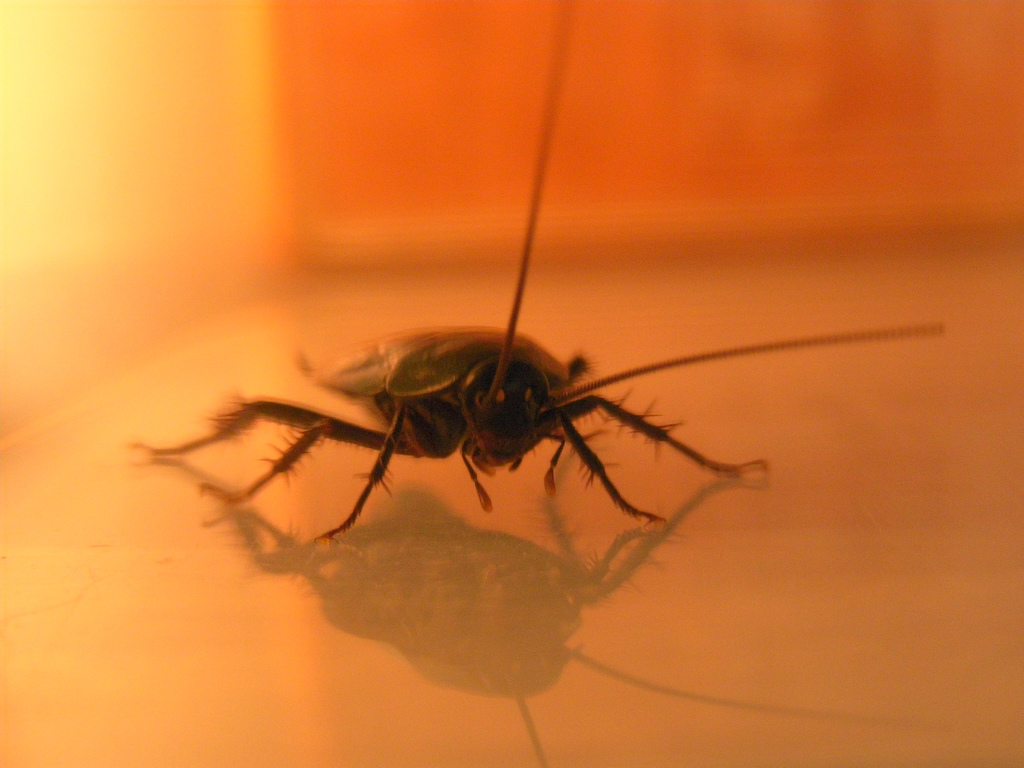
They not only make us squirm and jump, cockroaches’ tendency to dwell around waste deposits and in kitchen areas make these pests apt to spreading diseases. There are several different kinds of cockroaches, with some able to emit odors, and others able to produce sounds, such as hissing or chirping. These insects will enter our households through cracks, vents, sewers, drain pipes, or even on grocery bags and purses. But why is a home the ideal breeding spot for cockroaches?
A cockroach is a beetle-like scavenging insect with long antennae, six legs, and some with wings, although they’re still not likely to fly. One of the most common questions professionals receive about cockroaches is regarding their behavior toward humans. In fact, cockroaches are omnivores, feeding on both plants and animals, so while it’s not the norm, there have certainly been instances of cockroaches biting humans, causing lesions, irritation, and swelling.
Unfortunately, cockroaches reproduce quickly, as the female American roach, for example, will reproduce six to 90 times in her lifetime, with 15 embryos each time. This means that if you see one of these insects inside your home or business, there are likely many more, multiplying in well-hidden places. Moreover, cockroaches are great at hiding, and their eggs are naturally protected from the kind of insecticides you would find at the store. For these reasons, it is ineffective to try to handle a cockroach infestation without advanced equipment and professional knowledge.
Why are centipedes in my house?
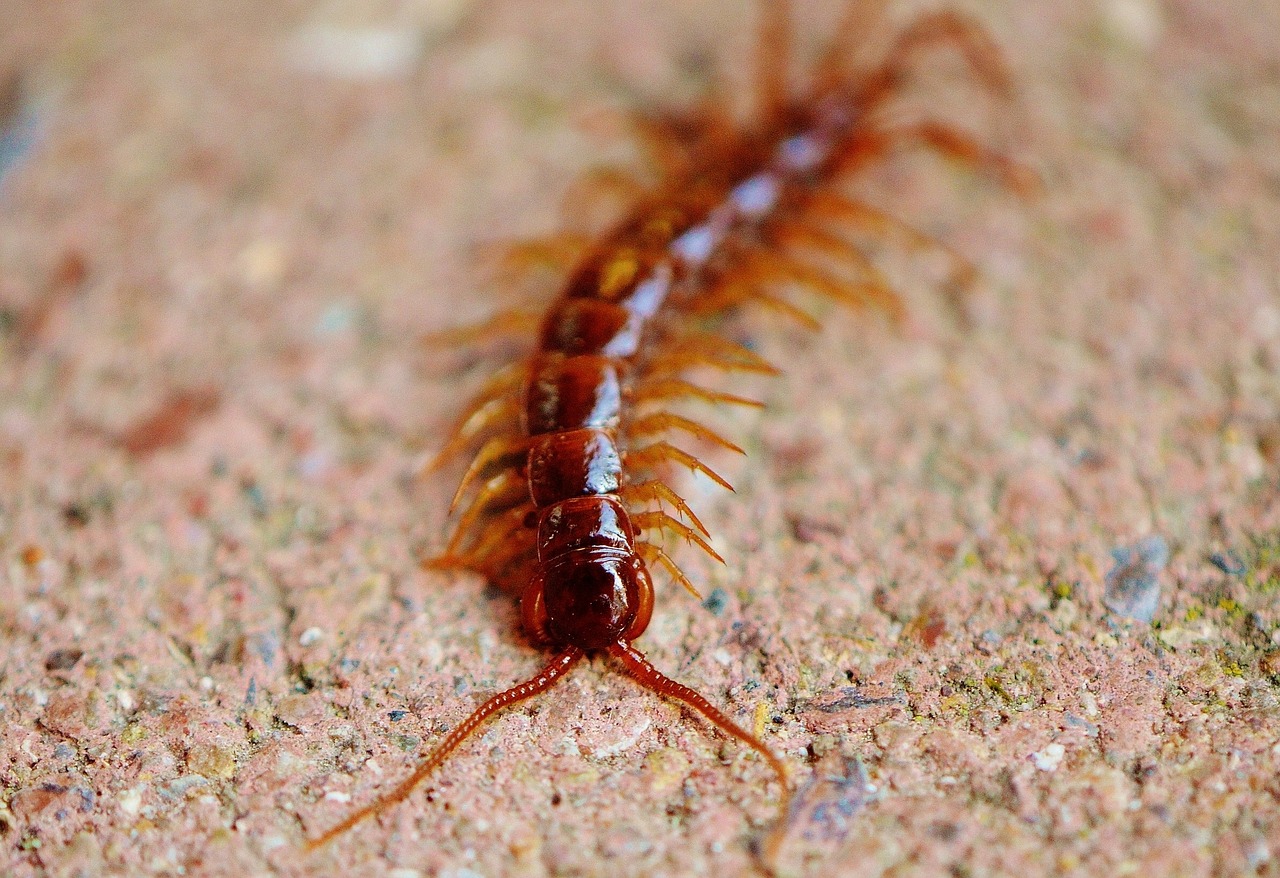
While outdoor centipedes can be found in stacks of firewood, under piles of leaves, within rock crevices, or in tree bark, the house centipede tends to be located in kitchens, bathrooms, basements, and drains. In the case of a house centipede, their diet may be viewed as beneficial in that, as omnivores, they feed on cockroaches and other pests. However, their presence is only slightly effective and proves to be more of a nuisance than an advantage. Unfortunately, centipedes leave no trail behind to signal an infestation, but are usually spotted running quickly across walls, in a sink or tub, or on the ceiling.
Like all living things, centipedes have a specific preferred environment, and becoming knowledgeable of their inclinations can make it easier to protect against an infestation. Centipedes are more likely to arise in moist places, especially where there are cracks and crevices. It may be helpful to use a dehumidifier if there is any concern of a centipede infestation within the home. It’s also a good idea to keep mulch, rotting wood, leaf litter, etc., at least three feet away from the foundation.
If house centipedes become a problem, it’s best to seek the assistance of a pest management professional. The professionals at Squared Away Pest Control can help.
What do I do if I suspect I have rodents in my home?
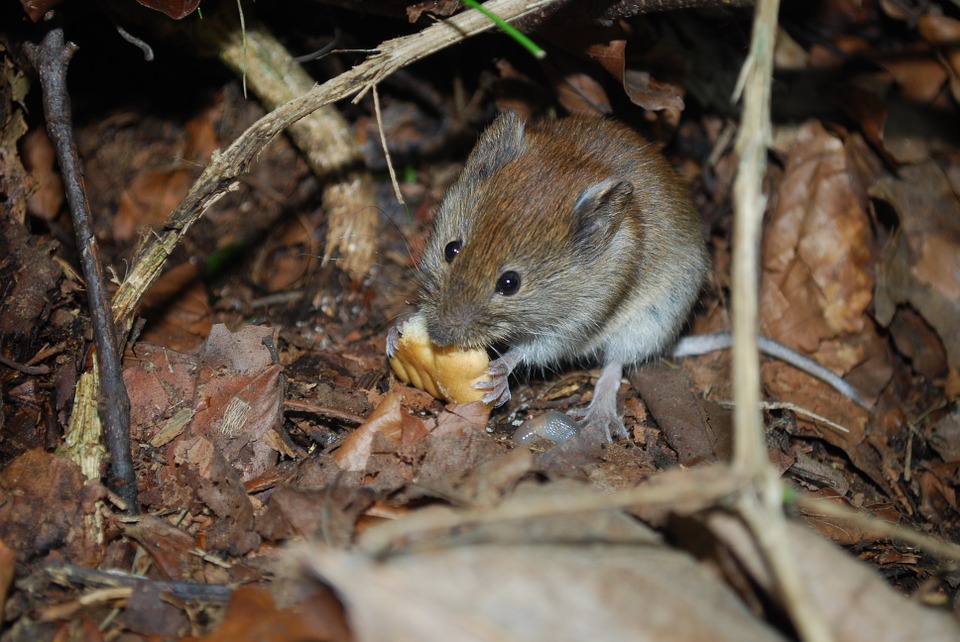
A rodent infestation can be a devastating discovery for homeowners. You may see a rodent run across a room, hear one in a wall, or find evidence that one has been in your kitchen. Whether a squirrel, rat, mouse, or a hamster you thought went missing, it’s extremely unpleasant having rodents in your home.
Rodents make up about 40% of mammals and there are roughly 2,000 different species native to almost every land mass. They are very diverse in their biological makeup and way of life, making them capable of living in any terrestrial habitat. Although rodents are generally not dangerous to humans, often their feces carry diseases such as hantavirus, leptospirosis, lymphocytic choriomeningitis, Tularemia and Salmonella. Droppings in your kitchen, bedroom, or bathroom could cause illness. Additionally, rodents can cause property damage by chewing through wires, car engines, insulation, and other problems.
A rodent in your home is upsetting and stressful. Call the professionals at Squared Away Pest Control for rodent extraction.
How to get rid of bedbugs?

It may be every vacationer’s worst nightmare, but bed bugs are not a threat solely to travelers, as these parasitic insects can also be picked up at movie theaters, retail stores, public libraries, and other common locations. Once in your home, bed bugs can be painful emotional & physical nuisances and almost impossible to eradicate on your own. Bed bugs will use their sharp proboscises, or beaks, to break through human skin and consume blood. The adult bed bug is about the size of an apple seed, and the youngest nymphs (babies) can be the size of a speck of dirt. The unfed nymphs are light-colored, whereas a bed bug that has fed will be red, rust, or brown in color.
Historically, people’s whose homes become infested with bedbugs experience a significant psychological toll, and can have trouble sleeping at night due to the fear of being bitten. It’s important to note that these creatures do not discriminate between invading clean or dirty homes, as often believed.
Eliminating a bedbug infestation is difficult, and it’s necessary to contact a professional to thoroughly handle the matter, ensuring the problem does not persist.
Why should I get the wasps nest removed from my yard?
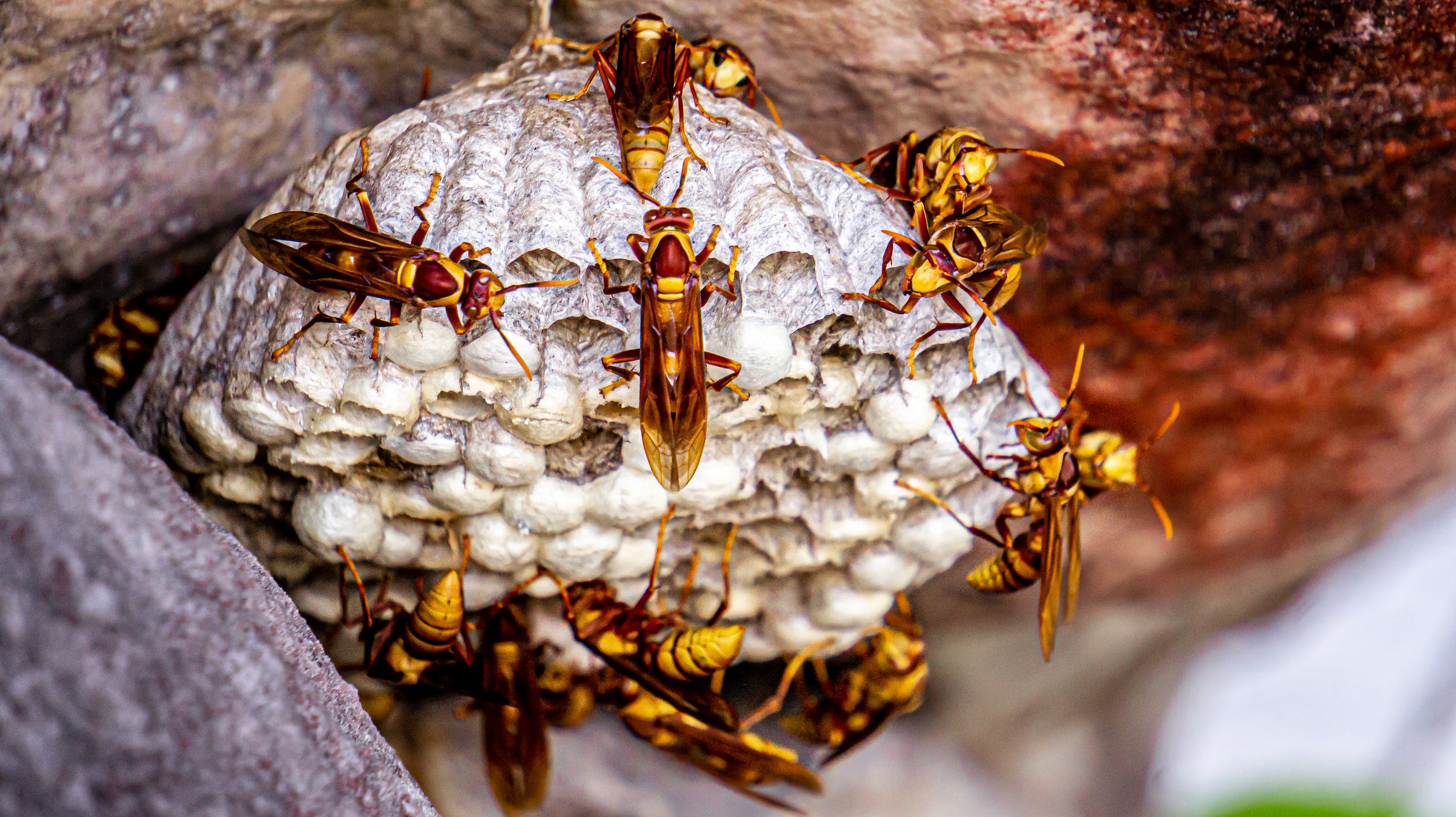
Like bees, wasps are a very important part of nature and the ecosystem. They not only pollinate our flowers and food crops, but wasps also regulate populations of crop pests such as caterpillars and whiteflies, contributing to global food security. Because wasps feed these crop pests to their young, they are considered predators. Paper wasps and yellow jackets are the most common wasps in New England, but worldwide 4,000 types have been discovered.
Although wasps are an essential part of the environment, they are not a welcome guest to residential homes. Wasps often make a sheltered nest with dead wood and plant stems in places like under your deck, in your garage, or a tree in your backyard. Wasps are fiercely territorial and will attack anyone near the nest. Their stings can cause anaphylaxis, a severe allergic reaction, and can be quite dangerous to allergic individuals. Wasps prefer to be out in warm temperatures, which means they are most active in the daytime.
Don’t let wasps keep you from enjoying the outdoors. Let the industry professionals take care of your pest issues, call Squared Away Pest Control!
What are earwigs?
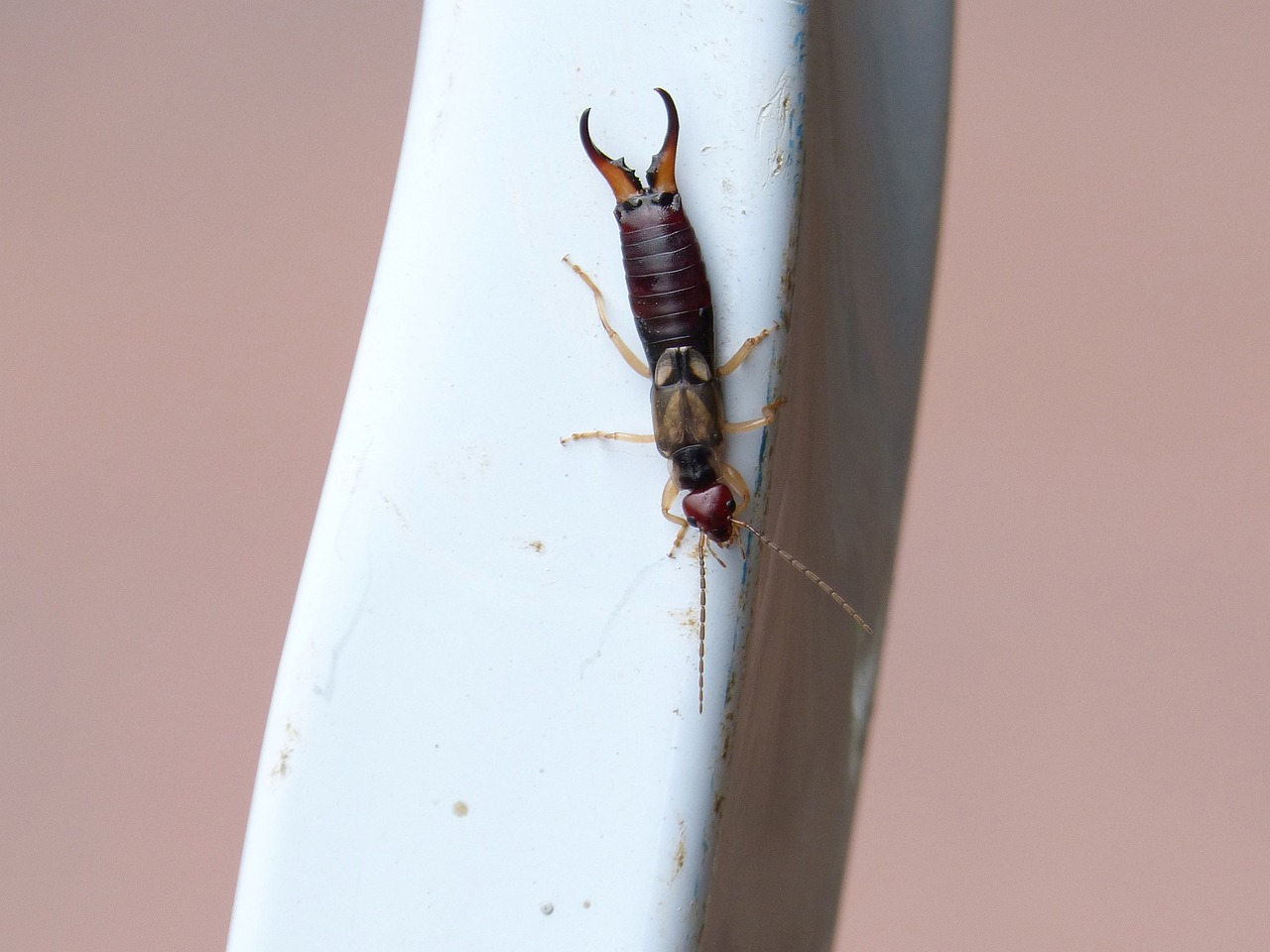
While earwigs prefer to live in moist soil, feeding on dead or live vegetation, these creatures can occasionally wander indoors, and have been known to infest various areas of a home. Unlike many other insect species, earwigs are not social critters, so their means of survival does not depend on a colony or nest. However, handling an infestation can be challenging and frightening, as the earwig is quite intimidating in appearance.
With earwigs being primarily outdoor insects, only sometimes making their way inside, you may be wondering how these insects manage to enter. They occasionally become annoying to humans, as they are attracted to light and are often spotted on porches or patios during summer nights. In some instances, earwigs move into homes to find food or because of a change in weather.
Home and business owners dealing with an earwig infestation are likely to find these pests in areas of the premises located near water, but the bugs will continue to every corner of the property. A few precautionary steps to avoid this situation is to move organic materials, such as logs and firewood, away from the structure. Also, arrange irrigation systems to water in the morning, allowing the landscape to dry during the day, and consider using yellow bulbs, since white lights are more attractive to insects. Finally, get in touch with a pest control professional regarding any questions or to take action against an earwig infestation, as these creatures can and do maneuver their way into households.
How do I get rid of mice in my home?
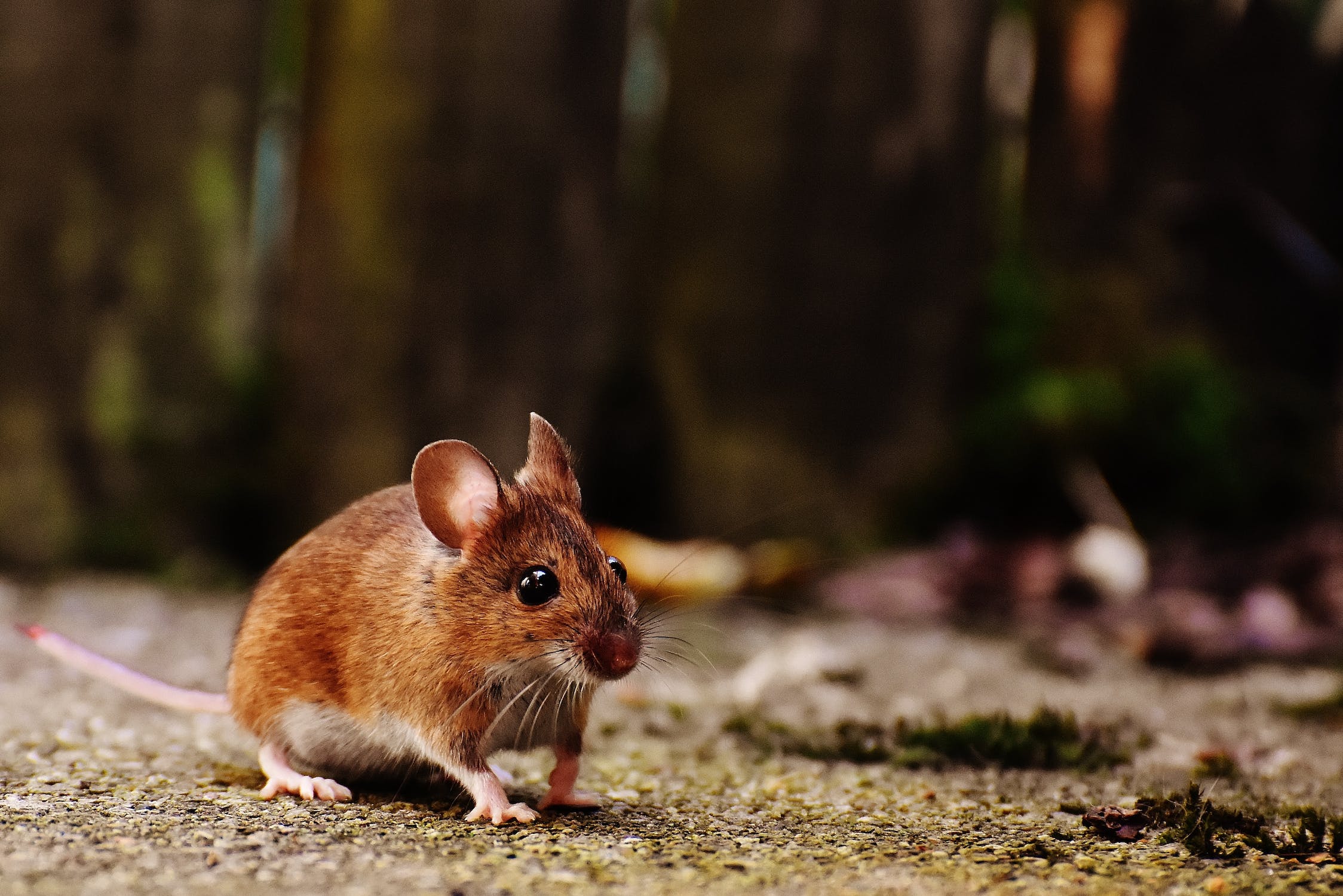
If you suspect you have mice, protect yourself and your home by checking for signs of their presence. Here are some of the most common signs of mice to look out for: droppings, grease marks, urine pillars, scratching sounds, nests, tracks/footprints, and/or a strong smell.
Mice will squeeze through any opening, including utility lines, pipes, even gaps below doors. And when they’ve settled, the mouse population increases rapidly, with one female able to have 5 to 10 litters throughout the year, of about 8-14 young each time.
Their constant gnawing habit is likely to damage your property. Mice aren’t just pesky, they are also associated with significant health risks. Their nature and design also make them perfect vehicles for harboring and rapidly transporting diseases. In fact, mice are notorious for spreading these ailments while scrambling around in search of food.
Of course, spotting mice in your home or business is upsetting enough in itself, there’s more than meets the eye! For these reasons, any concern regarding a mouse sighting is certainly justified and should be addressed, especially for those using a kitchen to cook food and for families with young children. Call Squared Away Pest Control, we can help.
Why do i have ants in my house?
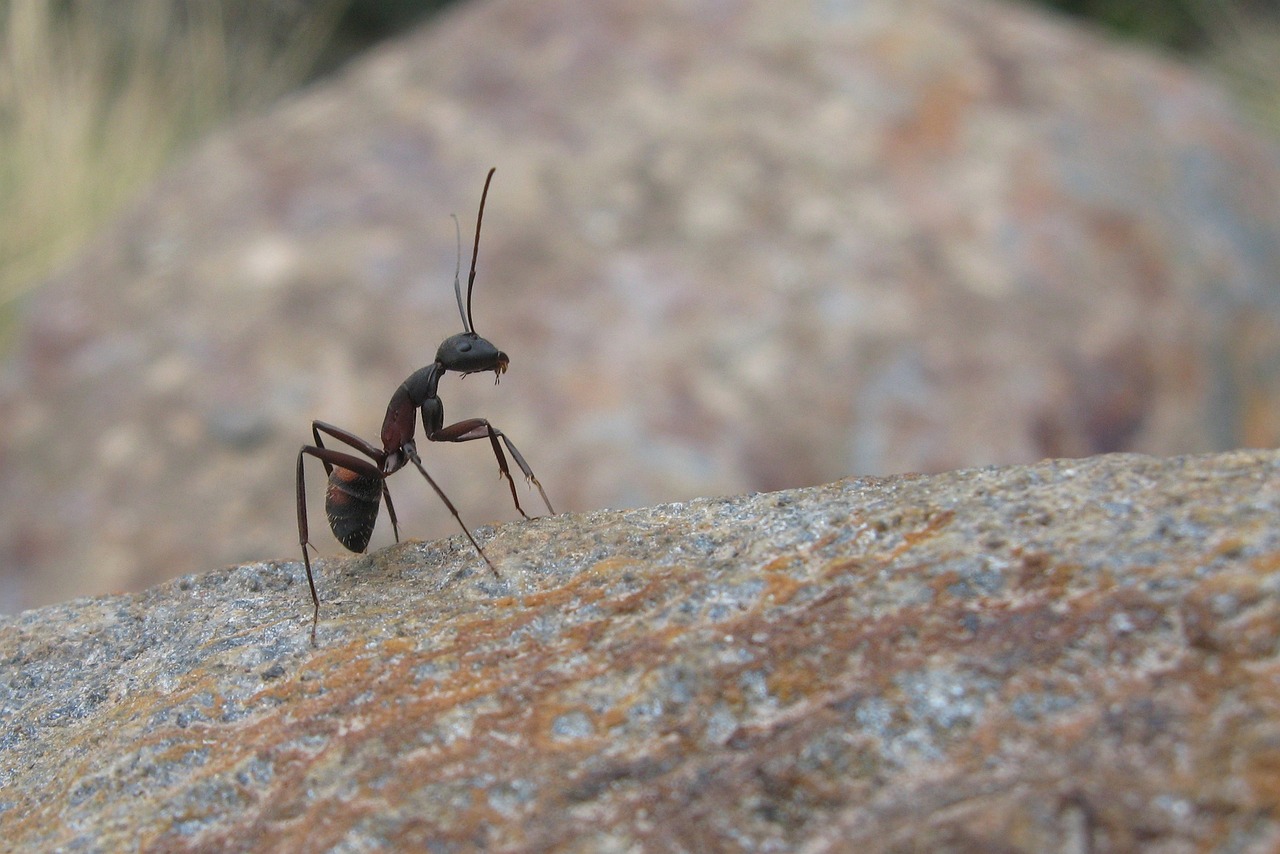
Ants pass through tiny cracks of a household, seeking food or water, and from there, they will nest just about anywhere, including indoors, in lawns, and even under foundations. There are many different kinds of ants, such as “carpenter ants,” which tend to nest in structural lumber, and “grease ants,” which live in walls, cabinet crevices, under counter-tops, and other disclosed areas. Ant colonies can be made up of anywhere from 300,000 to 500,000 insects, with worker ants living up to seven years, and the queen able to survive up to 15 years.
To eliminate any insect infestation, you must destroy the nest itself, and the same applies to an ant problem, which can only be defeated by wiping out the entire colony. However, it’s likely there are multiple colonies in your house, well hidden in hard-to-reach places. Home and business owners’ own efforts to tackle the issue usually prove futile, as their methods do not account for the fact that different kinds of ant infestations require different treatments.
To control an infestation properly and reduce the chances that the colony can return, it is important to contact a pest control professional. An expert from Squared Away Pest Control will provide an inspection to determine where the nest is located, as well as provide the most effective prevention and control service and recommendations.
Who can I call if I suspect I have a rat infestation?
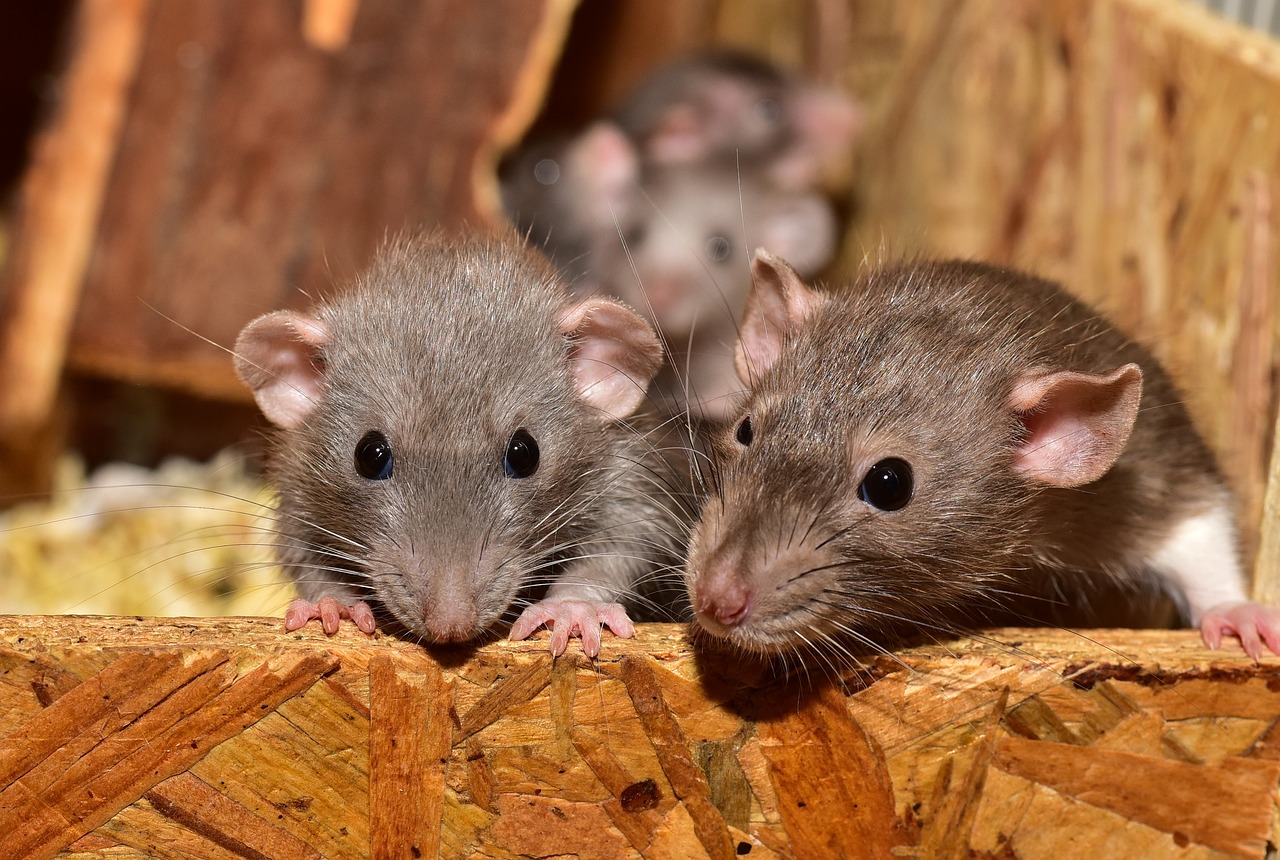
You’ve probably come across a rat while visiting large cities or traveling on the subway, but what you may not realize is that these scavengers also dwell in suburbs and rural areas. They are very capable of thriving in human environments, as their secretive behavior helps the rodents remain unseen by humans. With any sort of rat infestation, treatment of the situation can be dangerous and calls for the attention of an expert. In North America, professionals tend to deal most commonly with The Norway rat and Roof Rat. Do you know the difference?
Regardless of category, a rat infestation poses much risk, and should be left to the specialists to inspect and address appropriately. Rats are known to spread diseases through several different means, including physical contact, bites, contamination, or by fleas that have been feeding on the rodent. In fact, rats can transmit food poisoning by coming into contact with a food preparation surface, and can transmit the disease, “rat bite fever” through bacteria in their mouth. Also, hantavirus pulmonary syndrome is transferred through breathing rodent urine, droppings, or saliva.
It’s incredibly important to get in touch with a professional, who is aware of the hazards and how to navigate them, at any concern of a rat infestation. If you suspect you have a rat infestation, call Squared Away Pest Control today.
